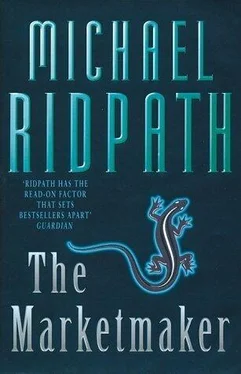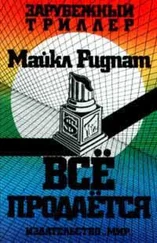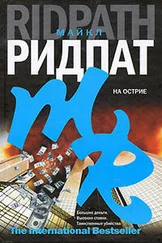Isabel and I both nodded. Whatever you say, Ricardo.
He looked at his watch. ‘Let’s see, it’s ten o’clock now. I’ve arranged a meeting with Oswaldo Bocci at ten forty-five. That just gives us time to finish our coffee.’
Oswaldo Bocci’s office was on the top floor of a cylindrical glass building with the words TV GoGo emblazoned over the entrance. It had one of those great Rio views that I was beginning to get used to, this one was of Guanabara Bay peeking out behind other prestigious offices. The chairs were light blue leather, and abstract art adorned the walls in a profusion of tropical colour. A few Indian artifacts dotted the large room, many of them figurines with pendulous breasts or prominent genitalia. They were all pretentiously displayed and labelled.
Bocci himself was a powerfully built fifty-year-old with jet black hair and a forceful chin. He wore an open-necked silk shirt, which stretched tight over his well-defined torso. Gold glittered from his hands, his neck and his left ear. The scent of his aftershave clashed with the fragrance of the exotic flowers in a tall vase by his desk.
Ricardo had told me about Bocci in the taxi. Apparently he was one of a number of Brazilian media entrepreneurs who wanted to challenge Roberto Marinho’s Globo empire for dominance of the hearts and minds of the people. So far he had successful papers in Rio and Minas Gerais, and he had launched a TV station from scratch in the Rio area that was ahead of plan. He had done all this with money provided by Dekker.
He was pleased to see Ricardo, was polite to me, and leered at Isabel. She ignored him vaguely.
After a quick discussion of Flamengo’s chances of winning the state soccer championship, Ricardo came to the point. ‘We need your help, Oswaldo.’
Bocci’s eyes lit up, and he smiled. It wasn’t a generous smile: he scented a trade of favours, a deal. ‘Anything I can do for you, my friend.’
‘You’ve heard about this Favela Bairro project?’
‘I have.’
‘And what do you think of it?’
‘I’d say it’s boring. I think we are against it, but I forget why. Wasting taxpayers’ money, adding to imprudent borrowing, that kind of thing.’
‘I have some interesting information about the deal.’
‘Really?’
‘Yes. The Finance Secretary has been in discussions with the local drug gangs that control the favelas. Most of the money will end up going to them although, of course, Humberto Alves will get some. A scandal, don’t you think?’
Bocci rubbed his large chin. ‘Maybe. I don’t know. Where’s the evidence?’
‘Oh, you know. Anonymous sources in banking circles.’
‘So you knew about this?’
‘We discovered it,’ said Ricardo. ‘And so we pulled out of the deal. We left it to another house who were prepared to turn a blind eye.’
‘Who was that?’
‘Bloomfield Weiss, the American investment bank.’ Ricardo paused, watching the other man. ‘So, what do you think?’
‘It’s a scandal, sure. But it’s not a really big scandal. And there’s no hard evidence. I don’t know.’
‘OK, I understand,’ said Ricardo. He pulled out a cigarette, and offered one to Bocci who took it. They both lit up. ‘So, how’s business?’
Bocci blew some smoke to the ceiling and smiled. ‘Great, great. TV GoGo’s doing very well. The format is really working — popular commercial TV for the people. Viewers understand that. And so do advertisers. After twelve months we’re way ahead of the figures we gave you in our forecast.’
Ricardo smiled. ‘I know, I’ve seen the numbers. It’s always nice to see people exceeding their projections. It doesn’t happen very often, I can tell you.’ He took a thoughtful drag on his cigarette. ‘Tell me, do you think this format would work in, say, São Paulo?’
Bocci’s eyes locked on him. Ricardo held them, unblinking.
‘I’m sure it would. Of course, we’d need the finance.’
‘How much?’
‘Fifty million dollars.’
Ricardo nodded. ‘I’m sure we could raise that for you. You’ll need some time, of course, to draw up detailed plans. But give Isabel a call when you’re ready, and we’ll sort something out.’
‘I’d need to be sure we could raise the finance. Don’t you have to talk to investors and so on?’
Ricardo waved his arm dismissively. ‘Oh, of course we’ll have to do all that eventually. But I’m certain I can get you the money, Oswaldo. And my word is better than any piece of paper. You know that.’
Bocci smiled broadly. ‘Good.’
‘Now,’ said Ricardo, ‘have you decided what editorial line to take on this favela business?’
So, it was all settled. The favela deal was destroyed. Bloomfield Weiss had learned their lesson: you don’t steal a deal from Dekker and get away with it. With our mission accomplished we could all go home now.
I was seething. I couldn’t believe what Ricardo had just done. I could see Isabel was angry too. But she couldn’t exactly say anything: if she hadn’t let Bloomfield Weiss win the favela deal it would still be alive. Ricardo must have been aware of the way his two colleagues felt, but he seemed to take no notice.
We left Bocci’s office, picked up our bags from the hotel, and made our way to the airport in painful silence. We were, of course, in first class. Ricardo checked us in. I was dismayed to see I was sitting next to him. Isabel was in the aisle opposite.
Dinner on the plane passed in silence. Ricardo read through a stack of papers. He had one of those extra-large briefcases that lawyers often use. A standard-sized briefcase wouldn’t give him enough fuel for a two-day business trip. I stared out of the window at the black sky. I realized that Ricardo hadn’t even spent one night in Brazil. It had only taken him an hour to finish off what Isabel and Humberto had taken a year to create.
After the attendant had cleared away my dinner, I eased my chair back and pretended to go to sleep. It was difficult: my chest was sore, and I could hear the gentle rustle of documents and the insistent scratch of pen on paper next to me.
Suddenly banking had become brutal. An idea that would improve the lives of thousands had been squashed because of jealousy over who would take the credit for it. I stewed, and my agitation grew. Eventually I couldn’t stand it any more. I opened my eyes, and reached into my own briefcase for a book. It was Islanders by Yevgeny Zamyatin, a Russian writer who had spent a couple of sad years in exile in Newcastle building ships just before the First World War. I was lulled by the music of the prose; in my mind Zamyatin was the closest the twentieth century had come to Pushkin’s mastery of the language, although he lacked Pushkin’s absolute precision. Islanders was a satire of the hypocrisy and moral emptiness of the capitalist industrial England he had found. He didn’t know the half of it. He should have got a job in a bank.
Then I remembered Zamyatin had ended his life in abject poverty in Paris.
‘How’s your Argentine trade going?’
‘What?’ I lifted my head from my book, and blinked at Ricardo.
‘I said, how’s your Argentine trade doing?’
I didn’t give a damn how the Argentine trade was doing. Actually I did. I hoped it was losing Dekker lots of money. But I had just the sense not to say that. I knew that not taking a trading position seriously would be tantamount to quitting, and I hadn’t decided whether I wanted to do that yet. ‘It hasn’t moved all week.’
‘Do you still believe in it?’
What a ridiculous question. I could believe in God or Marx or even Thatcher. But how could I believe in bonds?
I took a deep breath. ‘From what I knew at the time, the Argentine Discounts seemed good bonds to buy. But since I only had two days’ experience upon which to make that judgement, I have to say that I have very little confidence that it was the correct one. The only thing that makes me feel I might have got it right is that you bought the position yourself. I trust your judgement. If you haven’t sold the position, I still believe in it. Have you sold it?’
Читать дальше












